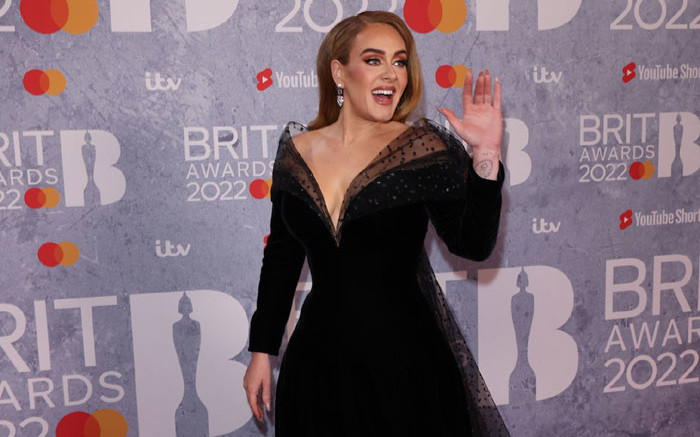HAJI MOHAMED DAWJEE: Adele’s ’30’: No feeling is final, a ‘post-partum’ review
The reviews, crticisms and critiques of Adele’s long-awaited new, and now slighter old album have long been written and released. There is almost nothing here I can tell you about it that you haven’t heard or before – in a tweet, on Instagram or on a news site. But one thing that I failed to find is an analysis of what makes her latest release – “30”
– so different and exceptional from her other successful albums.
What and where is the point we can put our finger on as avid fans or appreciators of music that succinctly states: “This is it, this is the thing, the magic, the X factor that sets these tracks apart from every other song she has ever written”. I went searching for the answer myself, by listening to each song over and over again, and I think I found the answer.
It’s no secret that the songstress feeds off her personal experience to extract from the listener feelings that are just
as strong or similar, just as relevant in their lives as someone so seemingly untouchable. Each album has been released after a major event in Adele’s life – mostly relationship-related. In that way, 30 is no different. Each song
is a reflection of a feeling and a fight and she seeks herself and her safety through a heart-breaking divorce. In fact, there’s a common worry amongst the biggest of fans and that is: What if Adele is just happy, and nothing is wrong,
will we get music from her again? What will she write about? How will she move us?
To that, I can only answer this, by stealing the words of Rainer Maria Rilke from his poem Go to the Limits of Your Longing and that is: Let everything happen to you: beauty and terror. Just keep going. No feeling is final.
And that, is ultimately the endless resource, the deepest, darkest and infinite well that Adele wades us through
with her music, and because every feeling in the human condition has no limit, no finality, she will always have reason to write and we will always have the need and reason to listen.
Of 30, I found myself asking, multiple years after my own divorce, if the music moved me because I felt for the singer or because I felt for myself? Are the songs relevant because of the stories they tell, the way they reflect on my personal life, my past, my memories, or are my emotions merely a welcome past-tense reminder that now, in my current state, life is as perfect as it comes?
Adele pushes the listener to reach for all these things at the same time and while this may not be new news when it comes to her music, for this has happened with many a song before, it’s the musicality in 30 that strings together and the orchestra, a front and centre piano that sings each note with empathy and full-bodied serving of symphony that harps back to the days of dramatic tonality in the vein of Barbra Streisand silencing the crowd while in full serenity at the Village Vanguard, a 60s Broadway musical or a bellowing from the diaphragm at the Ziegfiled Follies where the voice speaks for itself and yet does not compete with the composition. Each change in key is symbolic of a change of heart, each chromatic, the up and down of nostalgia for those back in the day songs with
big hearts and real music and no machines to overcrowd and populate real musicianship.
30 is an album of intentional indifference and unintentional collaboration and both these things, the apex of it all is
bookended by two songs Strangers by Nature and Love is a Game.
Each one a duet with the genres of a Motown classic or the great American songbook that includes songs such as April in Paris, Autumn in NewYork and Duke Ellington’s Don’t Get Around Much Anymore. In fact, if you close your eyes, you’re sitting in the Lincoln Centre, Radio City Music Hall, The Savoy or Carnegie Hall soaking it all in while seated and dressed to the nines out of sheer respect for the music and the talent.
During a time of Dua Lipa, Dj Khalid samples and dance hits determined to tear you away from conscious listening, 30 is raw, risky and a revelation.
If you are a Streisand, Shirley Bassey or even a Donna Hathaway or Dione Warwick fan, you will know exactly what I mean. If you are not, I invite you to search for their essential albums and you will see what I mean.
30 is like nothing you have ever heard before, not from Adele or any other artist in recent times, while still managing to be something you have yearned to hear again.
If you don’t believe me, just play the opening bars of Love is a Game and ride the highs, the lows and the dynamics of the string section and tell me you have not been moved to some golden age you haven’t experienced before but want to experience over and over again.
Haji Mohamed Dawjee is a South African columnist, disruptor of the peace and the author of ‘Sorry, Not Sorry: Experiences of a brown woman in a white South Africa’. Follow her on Twitter.
For all the latest lifestyle News Click Here

